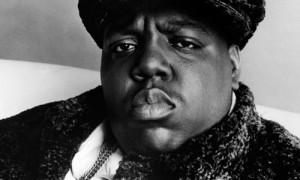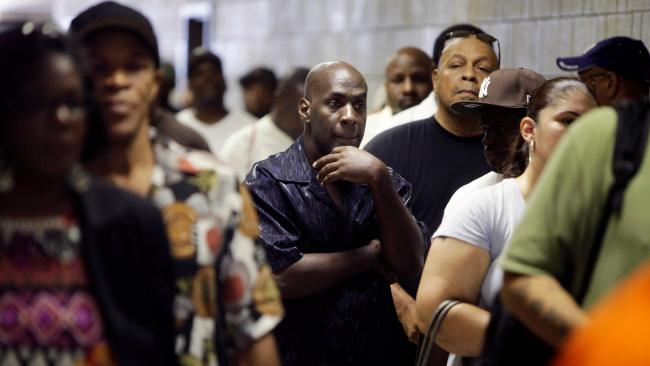(ThyBlackMan.com) March 9, 1997 will forever go down in history as the day when the world lost one of it’s most talented artists, the Notorious B.I.G. Biggie was “the man,” dropping lyrics like no other, gaining respect all around the world. He was loved by the community, and his spirit continues to live in the world on the 14-year anniversary of the day that he died.
I loved both Biggie and Tupac when they were alive. Both of them were about my age, and I mourned with the rest of the world after hearing about their deaths. I can also say that, like nearly everyone else, I knew that both  Biggie and Pac were going to die young. Both artists seemed to believe that the end was coming soon, which is a problem that is all too common among young African American males.
Biggie and Pac were going to die young. Both artists seemed to believe that the end was coming soon, which is a problem that is all too common among young African American males.
In the midst of the cultural cancer that impacts the lives of millions of young black men across America, we find that all too often young black men don’t expect to become old men. Hip-hop has long existed as a venue through which the state of the black male is communicated, and in this arena, you find that there is consistent conversation about violence, homicide and the soldier-like suicidal mindset that these men must embrace in order to have a chance to keep breathing.
Biggie’s last album before he died was called “Ready to Die.” His arch rival, Tupac Shakur, featured several songs about death on his last album, “All Eyez on Me.” In a quest to intimidate their long list of enemies, both Biggie and Pac maintained a kill-or-be-killed style of lyrical communication. It was frightening, but with enemies who can smell fear from a mile away, both men felt that communicating their willingness to sacrifice themselves to either save face or protect their allies was the necessary approach to an uncomfortably volatile situation. Like the many Crips and Bloods in South Central Los Angeles, peace is preferred, but typically unobtainable, which then means that you have to embrace the fact that there’s a good chance you’ll end up dead.
I was on the radio today with Santita Jackson, the daughter of Rev. Jesse Jackson. Her show is on WVON, which I consider to be the voice of the South Side of Chicago. We were discussing black males and suicide. Suicide rates for black men have grown dramatically since 1980, and I mentioned Biggie within the context of black male suicide. Of course we all know that Biggie and Pac didn’t commit suicide, but we all know that they were indeed suicidal. Some would define suicidal behavior to mean that an individual exists within a state of hopelessness, fully believing that sacrificing his own life (or at least being willing to fight to the death) is the only answer to his problems. One example is what Dr. Alvin Poussaint refers to as “suicide by cop,” where many black males kill themselves by engaging in shootouts with the police.
Tupac Shakur, Biggie Smalls and millions of other black males in urban settings are forced to live within a cultural tornado where the possibility of death exists around every corner. Homicide is the leading cause of death among young black men (with many of these guns being readily provided to our community by money hungry gun manufacturers), and many of these men are consistently faced with the possibility of being killed by another black male.
For those who escape the jaws of death, they are then forced to deal with the fact that black men are the most likely to be unemployed and incarcerated (notice the rapper Ice Cube’s lyric in which he says he’d rather “be judged by 12 than carried by 6,” reflecting the unfortunate choice between either incarceration or death). While we can certainly conclude that black men are less than perfect (like everyone else), one cannot deny that racism plays a powerful role in the way our society’s systems have dealt with African American men. In my own life, I can remember trying to do the right thing in school and still being sent to the detention hall and also how my teachers tried to put me into special education classes because they felt I wasn’t as intelligent as the other kids. I was later able to connect this reality with the fact that studies show that black boys are disciplined far more regularly than white kids, and are also more likely to be defined as having a learning disability, even when there is none.
When I remember the life of the Notorious B.I.G., I see a man who spoke about realities being faced by men like him. I too can recall being “ready to die,” especially when my best friend was shot in the head just a few months before Biggie was killed. The way Biggie brilliantly articulated the complexities of his struggles has been carried on by other artists like T.I. and Lil Wayne, and serve as reminders that out of love for our fathers, brothers and sons, we must seek to understand and remedy the experience of the black male in America.
Written By Dr. Boyce Watkins
Official website; http://boycewatkins.com/

















Leave a Reply